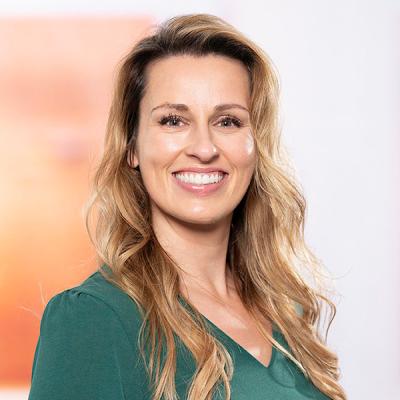Health Care Enforcement Update: Covid-19 Fraud Cases Brought By DOJ And Private Plaintiffs
DOJ Continues Historic Level of Criminal and Civil Enforcement Against COVID-19 Fraud
On Friday, March 26, 2021, the Department of Justice (DOJ) announced an update on its efforts to combat COVID-19 related fraud. Since Congress first responded to the coronavirus pandemic by passing $2.2 trillion in relief through the Coronavirus Aid, Relief, and Economic Security (CARES) Act in March 2020, DOJ has pursued civil and criminal actions primarily targeting (1) fraudulent COVID-19 related tests or treatments, and (2) abuse of the CARES Act’s popular Paycheck Protection Program (PPP). Friday’s announcement revealed that DOJ is also ramping up its efforts to prosecute fraud on the CARES Act’s Economic Injury Disaster Loan (EIDL) and Unemployment Insurance (UI) initiatives.
Enforcement actions have reached historic levels. To date, DOJ has prosecuted 474 criminal matters in 56 federal districts nationwide involving attempts to obtain over $569 million from the federal government. Attorney General Merrick B. Garland lauded DOJ’s response to COVID-19 and CARES Act fraud and highlighted DOJ’s ability to stand up multiple efforts to identify, investigate, and prosecute such fraud using data analysis and partnerships with law enforcement agencies. Garland described DOJ’s response as a model for high impact, white-collar enforcement.
The announcement summarized DOJ’s efforts across three fronts:
- Paycheck Protection Program fraud. DOJ charged 120 defendants with PPP fraud. Some business owners inflated their payroll expenses to obtain larger PPP loans while others revived shuttered businesses and purchased sham companies to apply for multiple PPP loans. Organized criminal networks submitted identical loan applications under the names of different companies, and then spent those proceeds on luxury goods. DOJ underscored two egregious offenders. One defendant in the Northern District of Texas applied to eight different PPP lenders, seeking 15 separate loans, totaling $24.8 million. He netted $17.3 million that he used to purchase homes, jewelry, and luxury cars. In the Central District of California, eight co-conspirators applied for 142 PPP and EIDL loans, seeking over $21 million, under stolen and made-up identities or sham companies. They purchased real estate, securities, and jewelry with the fraudulently obtained funds.
- Economic Injury Disaster Loans fraud. This program was slower to get off the ground than the PPP. Congress created the EIDL program to assist small businesses, agricultural entities, and non-profits. Much like with the PPP, fraudsters applied for loans on behalf of ineligible, non-existent, or sham businesses. As one example, DOJ partnered with the U.S. Attorney’s Office for the District of Colorado and the U.S. Secret Service to recoup $580 million in fraudulently obtained EIDL funds.
- Unemployment Insurance fraud. DOJ estimated that more than $860 billion in federal funds has been appropriated for UI benefits through September 2021. It has charged and arrested more than 140 individuals for fraud on this program since the start of the pandemic. Abroad, international organized criminal groups defrauded this program using stolen identities. At home, prisoners and identity thieves pilfered from the UI program, including one defendant who recently pleaded guilty for her role in a scheme involving more than $499,000 in stolen UI benefits using prisoners’ identities. The multi-agency National Unemployment Insurance Fraud Task Force is actively hiring prosecutors to focus specifically on UI fraud prosecutions.
Since the start of the pandemic, DOJ has prosecuted domestic and international fraudsters for peddling false cures, treatments, and personal protective equipment, including, for example, industrial bleach, ozone gas, vitamin supplements, and colloidal silver ointments. More broadly, through its International Computer Hacking and Intellectual Property (ICHIP) program, DOJ has mentored foreign counterparts around the globe to battle COVID-19 cyber-enabled and intellectual property fraud, including fraudulent and mislabeled COVID-19 treatments. ICHIP has provided webinars educating foreign prosecutors and law enforcement officials in Asia, Africa, Europe, and South America, resulting in takedowns of multiple online COVID-19 scammers and seizures of counterfeit medicines and medical supplies.
Notably, DOJ obtained its first civil settlement for PPP fraud involving an internet retail company whose president allegedly submitted false statements to federally insured banks. These charges included violations of the False Claims Act (FCA) and the Financial Institutions Reform, Recovery and Enforcement Act (FIRREA). In addition to criminal prosecutions, we expect that DOJ will continue to leverage these powerful civil statutes—which allow for significant monetary penalties—to punish and deter false statements made in connection with CARES Act fraud.
Private Plaintiff Securities Fraud Suits Follow Closely Behind DOJ Enforcement Actions
The historic level of COVID-19 related enforcement activity warrants careful attention from individuals and entities in the health care sector. As DOJ’s criminal and civil enforcement actions intensify, securities fraud lawsuits brought by private plaintiffs are likely to follow. The securities fraud suit recently filed by investors against Decision Diagnostics, Inc. is one instructive example.
Decision Diagnostics
In our Health Care Enforcement 2020 Year in Review & 2021 Outlook, we highlighted the December 2020 criminal securities fraud indictment against Keith Berman, the CEO of Decision Diagnostics. The allegations in the indictment relate to Berman’s scheme to defraud investors in connection with Decision Diagnostics’ purported development and FDA approval of a finger-prick COVID-19 blood test. The indictment alleges that, in fact, the test was a mere concept, and was nowhere near FDA approval. Berman’s criminal trial is scheduled for summer 2021. A parallel SEC proceeding is also pending against Berman and Decision Diagnostics, which will likely be stayed until the criminal action concludes.
On March 18, 2021, three investors in Decision Diagnostics filed a suit of their own, alleging securities fraud (among other claims) arising from the conduct alleged in the criminal indictment. Plaintiffs allege they invested in Decision Diagnostics in 2016 and 2017. The focus of the company’s operations was on FDA-approved blood glucose testing strips and monitors, as well as on developing electronic medical records (EMR) smartphone applications. Plaintiffs allege that, even before the pandemic, Berman made misrepresentations about Decision Diagnostics’ business—including its relationships with major retailers and status as a potential acquisition target—and misappropriated funds from the company for personal use.
In early 2020, Decision Diagnostics was allegedly in an “exceedingly dire financial position” and Berman “sought to unscrupulously capitalize” on the COVID-19 pandemic by marketing an at-home COVID-19 screening test. For example, in March 2020, Decision Diagnostics issued numerous press releases (1) confirming its plan to bring 100,000 COVID-19 tests to the U.S. market by May 2020; (2) stating that the test was progressing through FDA approvals; (3) publicizing $13 million in secured financing; and (4) announcing a distributorship agreement for the test, allegedly entered into with a company owned by plaintiffs. The complaint alleges that virtually all of these statements were false. Defendants have not yet answered or moved to dismiss.
Defense Considerations in COVID-19 Securities Fraud Suits
We expect to see more COVID-19 securities fraud suits, and class actions, in the near term. We suspect that, given DOJ’s enforcement activity, this area has the attention of the plaintiffs’ bar. Actors in the health care sector are a potential target. However, the allegations in the Decision Diagnostics case likely fall on the more extreme end of the spectrum. Entities that find themselves named as defendants in COVID-19 securities fraud suits have a number of important tools at their disposal to defend against these types of allegations.
In any securities fraud case, plaintiffs must meet the heightened pleading standards established by Rule 9(b) of the Federal Rules of Civil Procedure and the Private Securities Litigation Reform Act (PSLRA), which require particularity and specificity in allegations of fraud. Two aspects of the PSLRA are particularly noteworthy in the context of COVID-19 cases.
First, the PSLRA provides a safe harbor for forward looking statements. This protection applies if the statement was not material, not knowingly false when made, or accompanied by sufficient cautionary language. In our experience, many companies were quick to acknowledge and highlight the uncertainties and unknowns associated with COVID-19 and related market conditions. Accordingly, the PSLRA’s forward-looking statements safe harbor may offer meaningful protection against COVID-19 securities fraud allegations.
Second, pleading and proving loss causation will present a high hurdle for plaintiffs in COVID-19 securities fraud suits. Generally, a company’s announcement of bad news, followed by a stock drop, is insufficient to establish loss causation. For most of 2020, the COVID-19 news cycle moved at a rapid pace, including often inconsistent messaging from federal and state governments, and reports of outbreaks and vaccine developments. All of these factors pose challenges to plaintiffs seeking to survive a motion to dismiss.
Conclusion
A year ago, the federal government allocated over $2 trillion to fund COVID-19 relief through the CARES Act. DOJ’s announcement last week highlighted that COVID-19 related fraud enforcement is proceeding at record levels. The scope of DOJ’s CARES Act fraud prosecutions should continue to expand. The $178 billion Provider Relief Fund—which allocated funding to medical providers to cover pandemic response costs—seems like one area ripe for FCA enforcement. Distributions from the Provider Relief Fund are tethered to various terms and conditions, which themselves are subject to ambiguous FAQs, administrative rules, and regulatory guidance. We anticipate additional FCA enforcement activity in this area in the near term.
The timing of DOJ’s announcement is no coincidence. On March 11, 2021, the American Rescue Plan Act of 2021 was enacted, allocating another $1.9 trillion in relief to combat COVID-19. Given the volume of available federal funds, we expect DOJ’s criminal and civil enforcement activity will continue to accelerate. Where DOJ targets a public company for alleged COVID-19 fraud, private securities fraud suits are likely to follow
.



